
ALEXANDER I BALAS Authentic Ancient 152BC Seleukid RARE R1 R2 Greek
Alexander Balas, (died 145 bc ), king of Syria and Pergamum (Greek Asia Minor) and ruler of the remains of the Seleucid Empire (150-145 bc ). The pretended son of Antiochus IV Epiphanes, he won the Seleucid throne with the help of mercenaries, challenging and slaying Demetrius I Soter, the direct Seleucid heir.

Alexander I Balas Coins Ancient Greek Seleucia Grade F
International Standard Bible Encyclopedia Alexander Balas Alexander Balas PREVIOUS Alexander NEXT Alexander, The Great ALEXANDER BALAS Alexander ba'-las (Alexandros ho Balas legomenos): He contended against Demetrius I of Syria for the throne and succeeded in obtaining it.

A Ptolemaic eagle... oh wait actually not Coin Talk
ALEXANDER BALAS°ALEXANDER BALAS °, king of Syria, 150-146 b.c.e. According to Diodorus and Strabo, Balas was his original name before he assumed the cognomen Alexander. Many of his contemporaries state that Alexander Balas was a native of Smyrna, of lowly parentage, but he pretended to be the son of Antiochus iv Epiphanes and claimed the throne of his alleged father in opposition to.
Alexander I Balas AR Tetradrachm Coin Talk
Alexander Balas (bā´ləs), d. 145 BC, ruler of Syria, putative son of Antiochus IV. He seized power from his uncle Demetrius I (c.152 BC); Jonathan the Maccabee supported him. He died in battle against Ptolemy Philometor. The Columbia Encyclopedia, 6th ed. Alexander The Great Alexander the Great Alexander the Great Alexander the Great (356.

Alexander Balas AE, VERY RARE!, Gaza Mint, 150 145 B.C.E.
This tool of legitimation was taken over by the usurper Alexander I Balas and would later become a way for his descendants to link themselves to their predecessor. Accordingly, the serrated fabric disappears in the Seleucid Empire with the death of the last descendant of Alexander I, Alexander II Zabinas. This analysis can potentially change.

Alexander I Balas 150146 B.C. AR Tetradrachm Coin Replicas
Alexander I Balas (from Bel, Semitic for "lord"): name of a Seleucid king, ruled from 152 to 145. Cleopatra Thea and Alexander Balas Successor of: Demetrius I Soter Relatives: Father: Antiochus IV Epiphanes (spurious) Mother: Laodice IV (spurious) Wife: Cleopatra Thea (daughter of Ptolemy VI Philometor)
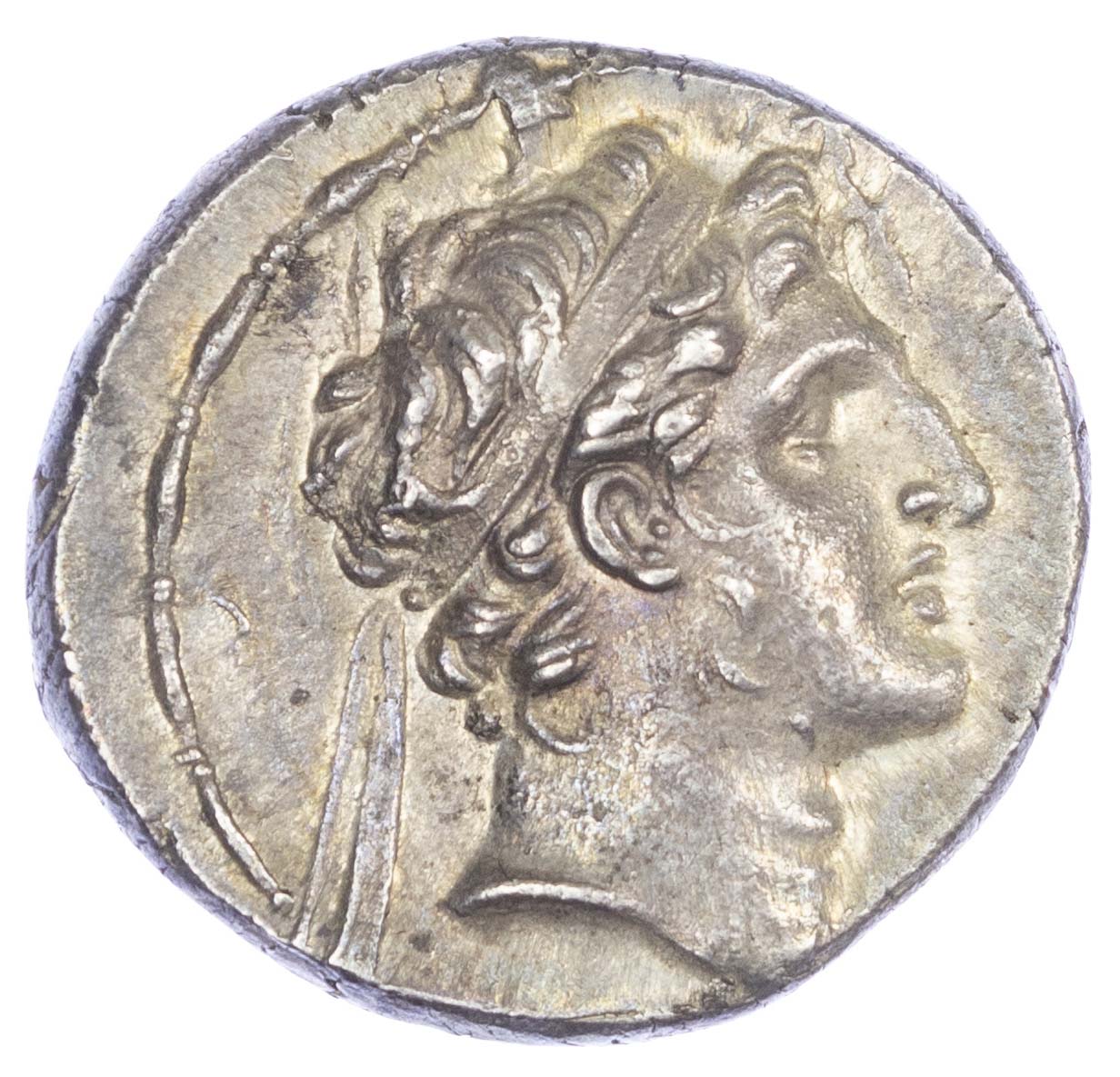
Alexander Balas, Silver Tetradrachm Baldwin's
Oku-yun, . " Alexandros I Balas ." World History Encyclopedia. World History Encyclopedia, 16 Apr 2018. Web. 23 Dec 2023. Alexander I Balas was born in Smyrna and ruled the Greek Seleucid kingdom from 152-145 BCE.
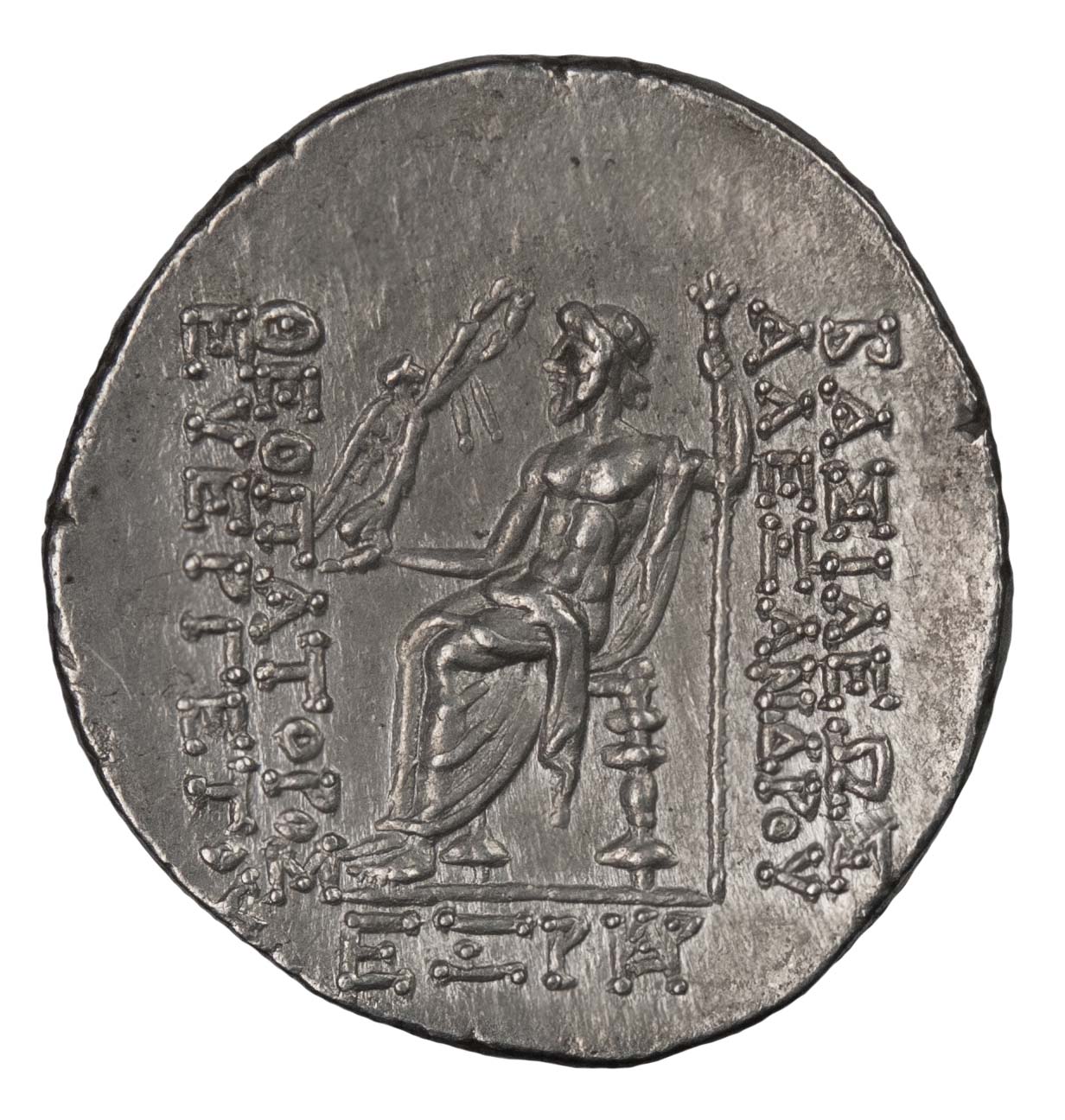
Alexander I Balas, Silver Tetradrachm Baldwin's
Alexandros I Balas was a Seleucid king from 152 BC to 145 BCE. As the Seleucid king Demetrius I Soter (162-150 BCE) became more and more unpopular due to his arrogance and drunkenness, it was quite an easy task for the rival kingdoms, such as Pergamum or Egypt to stir up a revolt against him.

Greek Antiquity Seleucid kings. AE coin of Alexander I Balas, 150
C Coins of Alexander I Balas (1 C, 10 F) Media in category "Alexander I Balas" The following 2 files are in this category, out of 2 total. Arte ellenistica, alessandro I bala, sardonice, 150 ac. ca..JPG 1,543 × 1,473; 1.12 MB Nuremberg chronicles f 083v 1.png 256 × 1,176; 723 KB

Syria, Seleucid Kingdom, Alexander I Balas, 150 BCE to 145 BCE, dated
Alexander Balus. Alexander Balus ( HWV 65) is an oratorio by George Frideric Handel, named after its title character, the Seleucid king Alexander Balas. The work has three acts and was written in English. The period of the story is from 150 B.C to 145 B.C. The libretto is by Thomas Morell after the biblical book of 1 Maccabees .
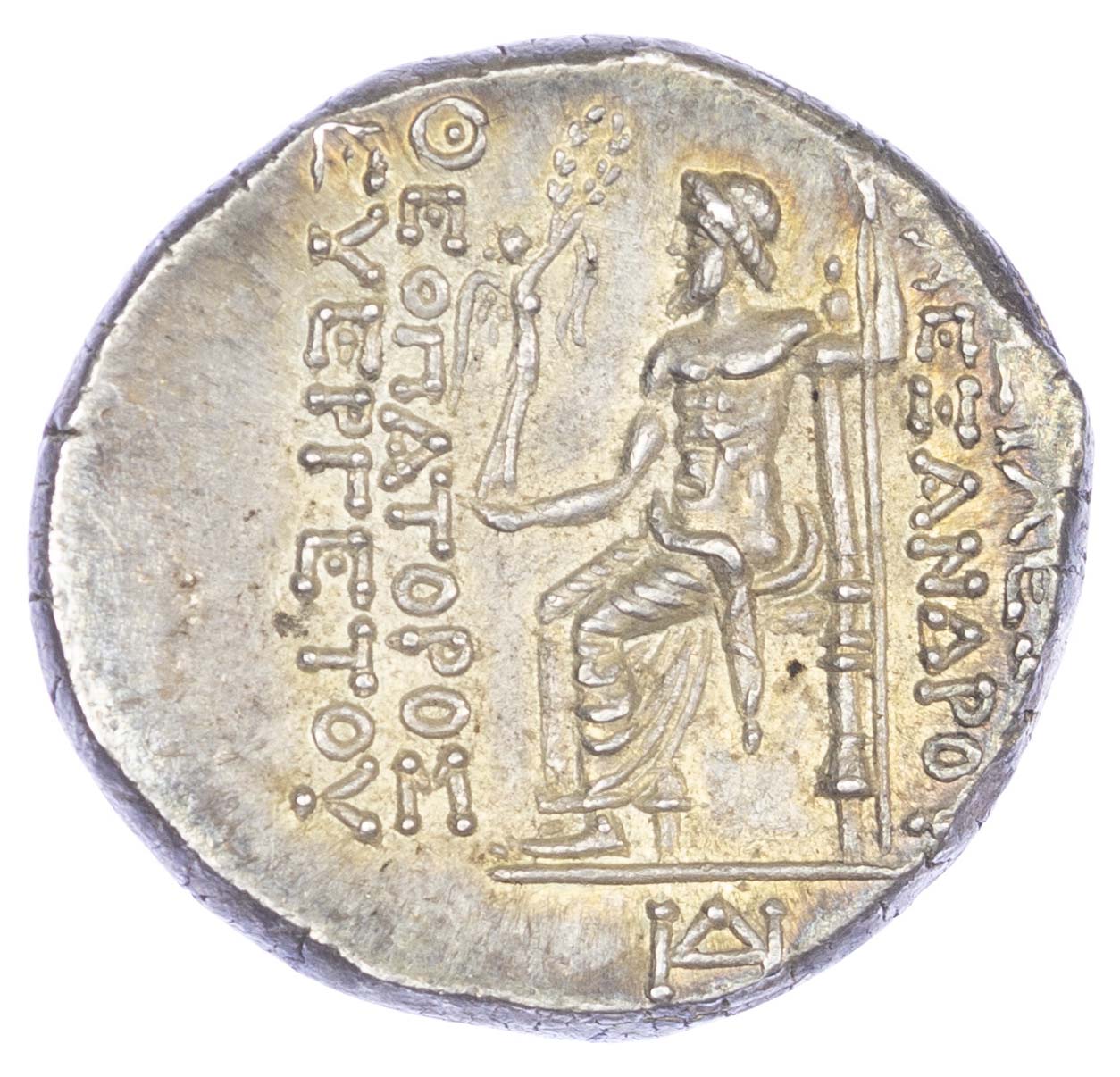
Alexander Balas, Silver Tetradrachm Baldwin's
People > Alexander Balas. Alexander Balas Background Alexander BalasAlexander I Syria-Antiochia face.jpgKing of the Seleucid Empire (King of Syria)Reign150-146 BCPredecessorDemetrius I SoterSuccessorsDemetrius II Nicator or Antiochus VI DionysusQueenCleopatra TheaBornSmyrnaDied146 BCWifeCleopatra TheaIssueAntiochus VI Dionysus (first son with Cleopatra Thea)DynastySeleucidFatherAntiochus IV.

Alexander Balas silver tetradrachm ArtAncient
The Bronze Coins of Alexander the Great in NEMC Collection 2021 • Dalia Amine The National Museum of Egyptian Civilization (NEMC) has preserved since 2007 a collection of coins that were donated by Emma Jacot to the Greco-Roman Museum of Alexandria in 1953.
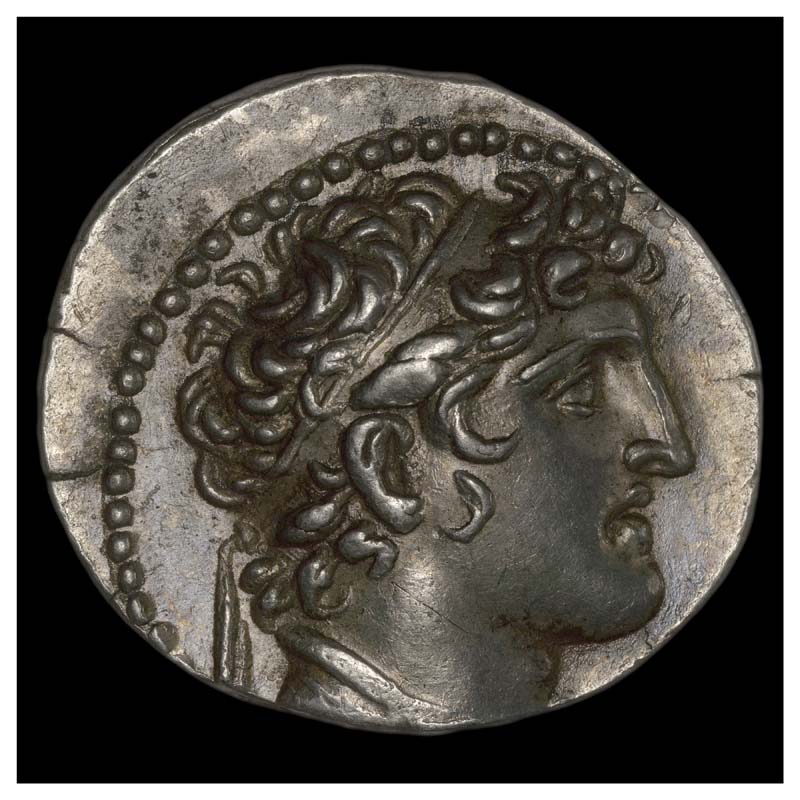
Alexander Balas didrachm
Alexander Balas thus contributed to the advancement of the Jews, both in their internal and external affairs; and this attitude of his accounts satisfactorily for the love and devotion shown by them toward him; as the chronicler says, "he was the first that spake words of peace unto them" (I Macc. x. 47). The name Balas seems to have been his.
Alexander I Balas AR Tetradrachm Coin Talk
Alexander Balas (Ancient Greek: Ἀλέξανδρoς Bάλας), ruler of the Greek Seleucid kingdom in 150-146 BC. Life He was a native of Smyrna of humble origin, but gave himself out to be the son of Antiochus IV Epiphanes and Laodice IV and heir to the Seleucid throne.
The Coins of Alexander I Balas
Alexander Balas initially had the support of Ptolemaic Egypt and its king Ptolemy VI Philometor; he married Ptolemy's daughter Cleopatra Thea to create an alliance. [1] However, this peace was not to last.
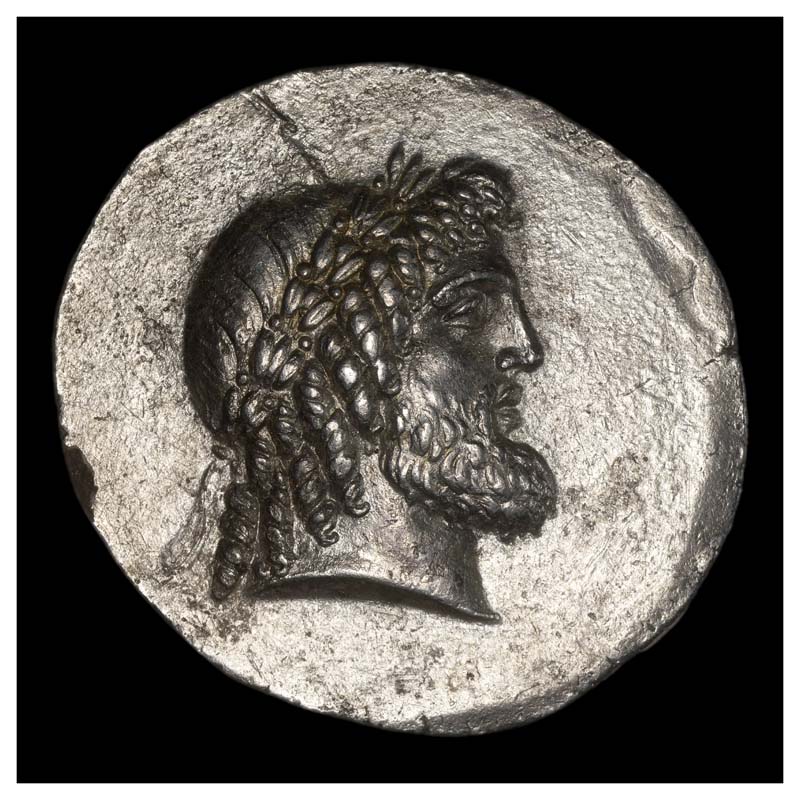
Alexander Balas tetradrachm (portrait of Zeus)
Houghton 179v Seleukid Kingdom, Alexander I Balas. 150-145 BC. AR Tetradrachm. Antioch mint. Diademed head right / Zeus seated left, holding Nike and sceptre; ΩΠMΔ monogram in inner left field, date EΞΡ and Φ in exergue. Houghton 179 var (Φ in exergue). Text Image Houghton 181 Seleukid Kingdom, Alexander I Balas AR Tetradrachm.